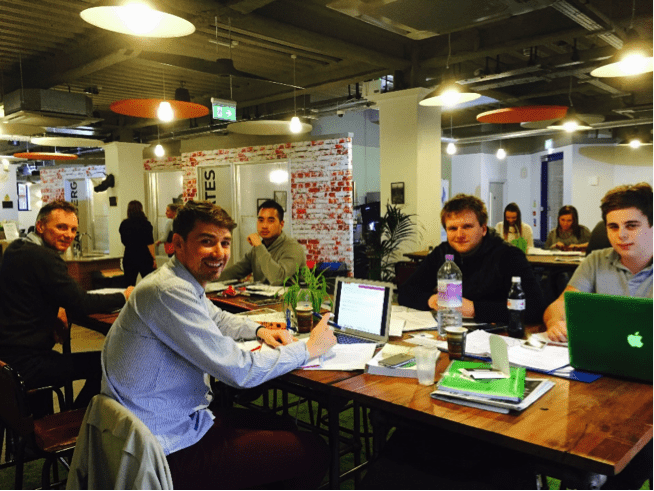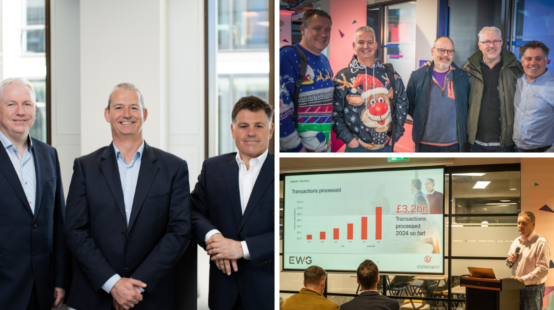
For anyone who cares about Jersey, its future and the digital economy, the latest research commissioned by Digital Jersey (DJ) will be inspiring reading. The purpose of DJ is to act as an accelerator for the digital economy, so we listen to all sectors of the community in which we operate to find the best ways forward. As part of this, we commissioned educational experts to seek the views of local business people, entrepreneurs, educators, government representatives and students to create the Learning Beyond 18 Vision Paper.
The aim of the Vision Paper was to identify strategic approaches to create the right opportunities for 18+ education in Jersey in the digital age. This included looking at the feasibility of a university hub concept to contribute to the island’s digital ecosystem. Most successful centres have a university at the heart of their ecosystem, for example The Massachusetts Institute of Technology (MIT), which is helping to create a vibrant tech scene in Boston and proving that a strong, valued higher education sector leads to the development of skills the economy needs to prosper. Universities don’t only provide talent but also foster ideas, and support applied research and development. We lack this at present. We also need to raise awareness amongst islanders of the importance of life-long learning in a digital world. For digital skills to be fully utilised in our economy, we need to value the role of education in enabling change to happen.
The study revealed really exciting opportunities, and a vision for what Jersey can do to make these opportunities a reality.
Why the Vision Paper?
In the past technology made us question "how can we do what we do, but better?", now it asks us "anything is possible, what would we LIKE it to do?” The possibilities are endless and impacting on all sectors; health, education, finance, retail, indeed all employment. We are only limited by our vision. Technological change has enabled innovation with accompanying new sectors: driverless and electric vehicles, wearable devices that monitor health and fitness, 3D printers, renewable energy, real time translation, and more.
The Internet of Everything means the concept of space – including learning spaces – is radically changing. The traditional classroom has opened up to a highly connected digital universe, where students can learn anywhere, on any device. The creation, development and sharing of research and new ideas will become increasingly collaborative through Big Data and cloud software. The Internet of Everything means accredited learning is not confined to one place – or one life stage. It’s lifelong. Jersey needs to embrace this reality.
About 80% of our local businesses use digital technology every day, but still only about a quarter of our students are graduating with the digital skills our island needs. With the rapid technological developments in the world today, it’s clear that to continue to compete in the global economy, Jersey needs to encourage a digitally enabled society with all citizens engaging with technology. This mirrors the changing world of employment, where there’s an increased emphasis and requirement for digital skills.
What does the paper recommend?
The "Learning Beyond" paper looks at these issues and recommends that we provide opportunities for 75% of our school leavers to experience higher learning and entrepreneurial skills. EU recommendations are 60% by 2020 but Jersey shouldn’t just be following the herd – that’s the way to get left behind – rather, Jersey should be ahead of it. We need to do things differently, not the same, to remain competitive. At present, 57% of local school leavers (Year 13s) from Jersey go onto higher education, with 15% taking a gap year and likely to go on to higher education next year. We believe 75% of school leavers should have the opportunity to experience some modules beyond A-level
The paper also suggests that we must be more flexible in our approach by allowing young people to progress when they show ability in their specialist areas. Apprenticeships are key for our economic prosperity as well as individual job creation and fulfillment.
"Learning Beyond" identifies a whole range of innovative means to enable this to happen. We already know that the Internet can provide access to an ever-increasing range of high quality, flexible, relevant and up to date massive open online courses (MOOCs), which are affordable or even free. Gaps in knowledge can be supplemented with online courses designed by world-class universities, however this is not enough. To keep up, Jersey will need to be proactive and do much more.
When working, we often need information that helps us to develop a special skill or achieve a task. Bite-sized learning as and when it is needed could be another way forward for many Jersey’s citizens. The paper advises that we develop a Jersey-wide digital framework for online Open Badges, which would be a digital representation of a skill earned, or courses completed. These badges could confirm participation in digital programmes of study, collectively building up to a certificate, diploma or degree. The badges will be available to everyone in Jersey, students or adults, old or young, in work, retired, or currently looking for work. Businesses and educators, working together in partnership, will design these badges so we can be sure they are just what Jersey needs to drive growth and job creation.
To make this happen, a bigger picture skills analysis is required over the next three years to identify both the existing digital skills and where there are gaps. Many eligible short programmes of study already exist in our Higher Education and Further Education institutions, businesses and startups. If we create an open standard to be combined with badges, we can be sure that everything counts, and that most of it is useful and valued!
Another urgent action point is the development of digital apprenticeships that allow young people to combine work in industry with study, and gain highly relevant accreditation right up to degree level. Jersey already has the business and educational skills required to develop digital apprenticeships, but for this to become a reality business and education need to work more closely, and must be open and honest about their strengths or weaknesses. This one is urgent: it's needed, can happen quickly, and builds on our local strengths. Digital Jersey and the tech industry are developing a pilot digital apprentice programme with Jersey Trackers: the States of Jersey apprentice programme to start before the end of this year, and we must build on this.
The "Learning Beyond" paper also makes the exciting proposition of a vibrant central ‘Hub’ where people on any of these courses can meet, debate, chat and have access to advanced technology. In short, a common place to share experiences and learn together. This vision builds on Digital Jersey’s Hub, which provides elements of such an environment.
Finally, the Vision Paper urges us to add pace. The technological sector is changing rapidly, and if we don’t act quickly and decisively, Jersey will fall so far behind that the opportunities will slip away.
What now?
This blog post is a call to action. A feasibility study is being started to develop a roadmap to take this project forward. Digital Jersey, in partnership with Skills Jersey, will invite stakeholders from all sectors to join a working group to discuss the roadmap and put a plan in to action. I urge all interested parties to come forward and get involved. This is our chance to make a difference now and for the future and build the foundations of a digital economy we can all be proud of.
Read the Learning Beyond 18 Vision Paper here.



